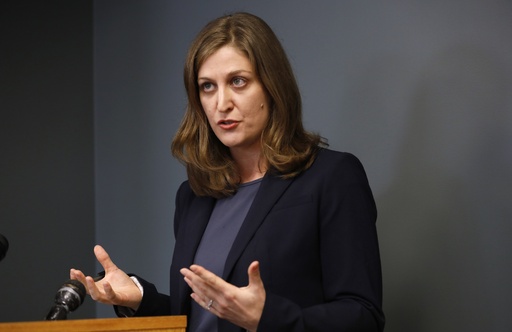
DES MOINES, Iowa — On Wednesday, officials confirmed that some voters in Iowa were improperly taken off registration lists by county election officials due to challenges made too close to the recent election date. According to Iowa Secretary of State Paul Pate, the removals primarily concerned claims filed within a “quiet period” of 90 days before the election, which restricts any modifications to voter rolls to prevent the loss of eligible voters.
Pate noted that his office has instructed county auditors to reach out to legal counsel to reinstate the affected voters, stating that “most, if not all of those counties” have complied with this directive. He emphasized that his office would follow up to ensure the situation was remedied and expressed hope that the issues had been resolved.
The American Civil Liberties Union (ACLU) and its local branch raised awareness about the matter, pointing out that multiple individuals contacted them after receiving notifications from their county auditors regarding investigations into their voter registration status due to challenges lodged against them.
While Pate did not specify the number of voters who were removed, the ACLU mentioned that they had identified three counties where mass challenges were reported. Attempts to get updates from auditors in those counties regarding the actual numbers were not immediately successful.
The National Voter Registration Act mandates a 90-day quiet period prior to elections to safeguard legitimate voters from being wrongly removed due to administrative errors or last-minute alterations that cannot be efficiently rectified. It also defends against the removal of voters due to address changes unless the voter confirms the move or fails to respond to a notice and does not participate in two consecutive federal elections.
Additionally, Iowa law has a 70-day freeze period, requiring that most challenges to voter registrations should be made before August 27. Rita Bettis Austen, legal director of the ACLU of Iowa, expressed her concerns about the situation, stressing that actions should not have been taken due to the designated quiet period.
She indicated that auditors in at least three of Iowa’s 99 counties appeared to have received mass challenges against voters. Bettis Austen described these challenges as possibly coming from outdated or incomplete information obtained from cross-referencing voter rolls with other databases. She characterized these as “malicious, mass voter challenges by individuals and groups who want to disrupt the election,” but did not delve into specifics about their origins.
As the nation heads into the 2024 presidential election, election officials are under greater scrutiny regarding claims of voter fraud, particularly in light of former President Donald Trump’s unfounded assertions of widespread fraud in the 2020 election. Furthermore, allegations regarding non-U.S. citizens registering and voting have become prominent in conservative political campaigns nationwide. While it is illegal for non-U.S. citizens to vote in federal elections, factual evidence of such occurrences is limited, though some states, including Iowa, have reported a handful of cases.
On the same day, the Supreme Court’s conservative majority permitted Virginia to resume its process for purging voter registrations, a measure that is said to target individuals unlawfully registering to vote.
Earlier this month, the Justice Department, along with various private organizations, filed a lawsuit against Virginia. They argued that state officials, acting under an executive order from Republican Governor Glenn Youngkin issued in August, began removing names from the voter rolls in contravention of the federal election law’s quiet period.
Last week, Pate sent Iowa county auditors a list of over 2,000 individuals who indicated to the state Department of Transportation that they were not citizens and later registered to vote. On Wednesday, he acknowledged that some of these individuals may have since become naturalized citizens and clarified that they had not been removed from voter rolls. Instead, poll workers would challenge their ballots, allowing voters seven days to verify their citizenship status.
